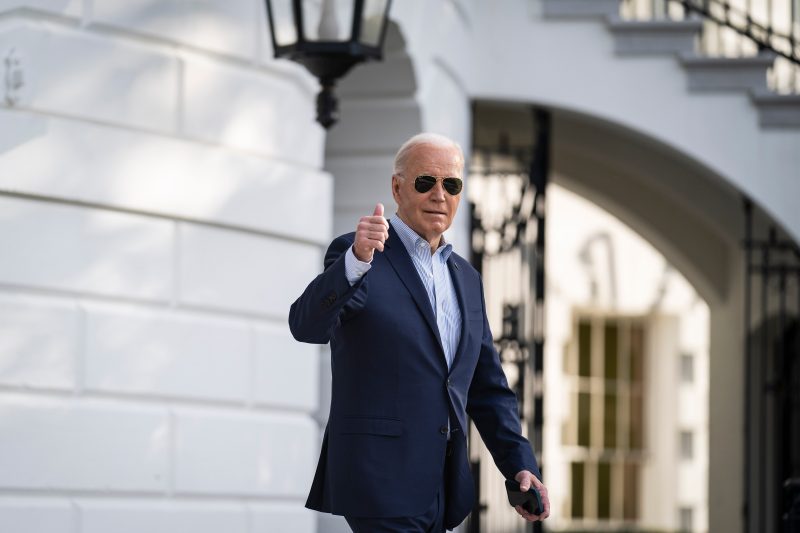In a recent flurry of campaign finance filings, President Joe Biden’s fundraising prowess has come to the forefront with a significant cash advantage over the GOP. As per the latest FEC reports, Biden’s campaign has been able to amass substantial financial resources, outstripping Republican fundraising efforts significantly. This financial edge has positioned the Democratic camp in a stronger stance as the 2022 midterm elections draw closer.
On the other side of the aisle, GOP megadonors have been pulling out all the stops in a bid to bolster their party’s electoral prospects. The latest FEC filings reveal a surge in spending by wealthy Republican backers, signaling a heightened commitment to amplifying their influence in the political arena. These deep-pocketed supporters are gearing up to make their presence felt in a range of races across the country, pouring substantial sums of money into campaign coffers and super PACs.
The stark disparity in fundraising figures between the two major parties underscores the evolving dynamics of political finance in the United States. While Biden and the Democrats have been able to leverage their financial muscle to consolidate their position, Republicans are banking on the largesse of well-heeled donors to counterbalance this advantage. The stage is set for a high-stakes battle of resources as both sides gear up for the electoral showdown ahead.
Amidst these shifting financial landscapes, questions around the influence of money in politics have once again come to the fore. The influx of big money into campaign coffers raises concerns about the potential for undue influence and the skewing of democratic processes. At a time when public trust in political institutions is already under strain, the outsized role of mega-donors in shaping electoral outcomes adds another layer of complexity to the ongoing political discourse.
As the 2022 midterms approach, the interplay between fundraising prowess, political messaging, and voter engagement will shape the contours of the electoral landscape. The strategic allocation of financial resources, coupled with a compelling narrative that resonates with voters, will be essential for both parties to make their mark in a highly polarized political environment. The battle for control of Congress and state seats promises to be intense, with money playing a pivotal role in determining the outcome.
In the midst of this financial arms race, the broader implications for democracy and governance loom large. The concentration of financial power in the hands of a select few individuals and interest groups raises fundamental questions about representation, accountability, and the quality of political discourse. As the 2022 elections unfold, the role of money in shaping the outcomes will continue to be a subject of intense scrutiny and debate, underscoring the need for robust campaign finance reform and transparency measures to safeguard the integrity of the electoral process.
In conclusion, the contrasting financial landscapes in the latest FEC filings underscore the high stakes involved in the upcoming 2022 midterm elections. While President Biden and the Democrats enjoy a significant cash advantage, GOP megadonors are making their presence felt with substantial spending to bolster Republican prospects. The interplay between money, politics, and democracy will continue to shape the contours of the electoral battleground, highlighting the need for greater transparency and accountability in campaign finance practices. As voters gear up to cast their ballots, the influence of money in politics remains a critical issue that demands close attention and thoughtful reflection.

